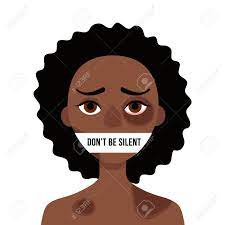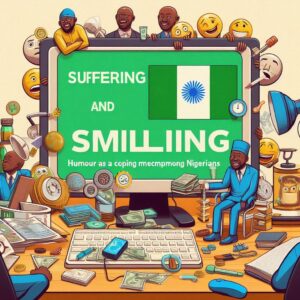
Happy Women’s Day to you all!
Today, as we celebrate the strength and resilience of women across the globe, let us also shed light on a topic that often remains hidden in the shadows: intimate partner violence. It’s time to address the elephant in the room, the painful reality that many women face behind closed doors. Despite society’s attempts to turn a blind eye, we must acknowledge the high prevalence of this despicable act and the devastating impact it has on its survivors. Join me as we explore the urgent need to break free from abusive relationships and marriages, preserve life, and reclaim our power.
While physical and sexual abuse tend to receive the most attention and sympathy, it is important to recognize that other forms of violence against women are just as prevalent, if not more so. Emotional abuse, controlling and coercive behaviours, and technology-facilitated abuse, such as stalking through social media or the installation of stalkerware on personal devices, are all forms of violence that often go unnoticed. This issue exists on a global scale, affecting both high- and low-income countries, but it is more prevalent in poorer countries such as Nigeria, where factors such as culture, poverty, education, and religion contribute to the acceptance of violence against women. Cultural and religious values that promote male dominance and pressure women to stay in abusive relationships, as well as societal norms that shame women for not fulfilling traditional gender roles, play a significant role in perpetuating intimate partner violence.
Imagine a scenario where a young bride, full of hope and dreams, finds herself trapped in a terrifying reality. Her older husband, initially considered a benefactor, turns into a violent abuser. Filled with fear, she reaches out to her parents, seeking solace and guidance. Unfortunately, they convince her to endure the abuse, stating that it is “normal” for new marriages to face such challenges. With a heavy heart, she tries to be patient with her husband, hoping for change. Seeking spiritual advice, she turns to her pastor, who advises her to pray and hold on to her marriage, as divorce is frowned upon in the eyes of God. He doesn’t tell her God hates abuse as well. Left with limited options, she continues to bear the brunt of her husband’s escalating abuse, losing herself a little more each day. The consequences ripple beyond her, affecting her innocent children who witness and endure the abuse. Trapped in this vicious cycle, they too, become both victims and perpetrators of similar mistreatment in their own relationships in the future.
Intimate partner violence is a complex issue that goes deeper than just the physical harm that we often hear about. What we fail to talk about enough is the strong link between mental health and this problem. We should recognize that people who have experienced adversities in childhood, such as abuse, neglect, or exposure to violence between their parents or substance abuse, are more likely to become both perpetrators and victims of intimate partner violence. The cycle of trauma continues as victims not only endure physical harm but could also suffer from a myriad of mental health problems, including anxiety, depression, substance use disorder, post-traumatic stress disorder (PTSD), personality disorders, psychosis, self-harm, and suicidality. I think the mental health problems that arise may partly be attributed to the secrecy and shame that victims endure while trapped in these abusive situations. Addressing mental health within the context of intimate partner violence is crucial for breaking this cycle and providing comprehensive support to those affected.
It has always baffled me how society expects women who have experienced intimate partner violence to feel ashamed and hide their pain as if they were the ones at fault. I must admit, I used to harbour anger towards these women, questioning why they would “choose” to remain in abusive relationships. But I now understand that it is not a choice they willingly make. It is fear, shame, ignorance, and the lack of viable options that keep them trapped in these harmful situations. The fact that we have managed to shift blame and shame from the perpetrators to the victims is utterly mind-boggling. I have personally witnessed the survivors of intimate partner violence carrying this heavy burden as a dark secret as if they were the ones who committed a terrible crime. It breaks my heart to see them have to bear this additional weight after enduring such trauma. As a society, we need to do better. We must create an environment where victims feel safe to speak out, where they are supported and uplifted instead of being burdened with misplaced shame. No one should be made to conceal their suffering, and it is our collective responsibility to ensure that these survivors are heard, believed, and provided with the help they need to heal and rebuild their lives.
As parents, we must prioritize the well-being of our children by showing them love and shielding them from any form of abuse or violence. If we had less-than-perfect parents ourselves, we must reflect on how their actions may have affected us and ensure that we do not perpetuate the same patterns with our own children. Taking deliberate steps to be better than our parents and seeking therapy or confiding in a supportive individual can help us untangle the complex webs of our upbringing. Education is key, not only for our children but for ourselves as well, to develop a healthy self-esteem and the ability to recognize signs of abuse. If you find yourself currently experiencing any form of violence from your partner, remember that abuse exists on a continuum of severity, starting with verbal and psychological harm that can escalate to severe physical abuse. It is crucial to prioritize your safety and well-being by leaving such relationships as early as possible, as continuous exposure to abuse can have long-lasting detrimental effects.
Congratulations and happy survival if you are a survivor of violence. Your experiences may have left you feeling anxious or with other mental health difficulties. It’s completely normal to not feel okay after enduring such horrors. Just like soldiers who seek therapy to address the aftereffects of war, it may be beneficial for you to consider therapy as well. I also acknowledge that therapy may not be affordable or accessible to everyone, especially those in low-income contexts like Nigeria. In such cases, self-help can be a more viable option. Engaging in activities like reading self-help books, journaling your thoughts, or talking to a wise and caring friend can provide some respite. But be cautious in choosing the person you confide in, as talking to someone ignorant could cause more harm than good. There are also mental health advocacy NGOs that can offer some form of support in the absence of standard psychological therapy.
As for those who haven’t experienced this type of violence, let us cultivate empathy towards those who have. Instead of judging or claiming to understand a pain we haven’t personally felt, it is crucial to listen, support, and validate their experiences.
On this day of reflection and recognition, let us honour the strength of women everywhere by taking actionable steps towards change. May we see a world where every woman is free from fear, empowered to live her life with dignity, and embraced by a community that stands against violence in all its forms. Here’s to the courageous women who have fought and continue to fight against the tides of abuse—your bravery lights the path to a brighter, safer future for all.
Happy International Women’s Day ❤️❤️❤️
Support for victims/survivors of violence.
Nigeria
I understand that calling the police may be complicated and expensive. You can reach out to your family, friends, colleagues, or anyone who cares about you, and try to distance yourself from your abuser. For mental health support, consider the following organizations below. I have personally volunteered for MANI and can assure you that they offer some form of psychological first aid. While I am not personally familiar with the last two organizations, they may also be able to assist.
Mentally Aware Nigeria Initiative (MANI):
SMS and calls: (809) 111-6264
Email: info@mentallyaware.org
Twitter: @MentallyAwareNG
She Writes Woman:
24/7 toll-free helpline: 0800 800 2000
Email: hello@shewriteswoman.org
Asido Foundation:
Email: asidofoundation@gmail.com
Phone number: 08180 777 458
If you are in Lagos State, Nigeria:
DSVRT (Domestic and Sexual Violence Response Team) provides access to free legal and psycho-social support, telemedicine services, and referrals for survivors of sexual and gender-based violence.
SMS: 6820
Call: 0800333333
Email: dsvrtlagos.org
Portugal
Call the anonymous and confidential 24/7 domestic abuse helpline at 800 202 148. You will be able to speak with a trained support worker who can provide you with information about your rights, offer psychological and emotional support, and guide you through the next steps.
Additionally, you can reach out to the Portuguese Victim Support Association (APAV) helpline at (+351) 116 006. They are available Monday to Friday from 9am to 9pm and can provide free legal advice as well as emotional and psychological support. In case of emergencies, please dial Portugal’s national emergency number 112.
If you require medical assistance, please go to the nearest A&E Department of a hospital or health centre.
Some self-help books
- It’s My Life Now: Starting Over After an Abusive Relationship by Meg Kennedy Dugan & Roger R. Hock
- Change Your Brain, Change Your Life by Daniel G. Amen
- Your Life After Trauma: Powerful Practices to Reclaim Your Identity by Michele Rosenthal
- The Emotionally Abusive Relationship: How to Stop Being Abused and How to Stop Abusing by Beverly Engel
- The Body Keeps the Score: Brain, Mind, and Body in the Healing of Trauma by Bessel van der Kolk M.D.




Happy international women’s day Debbie.
Thank you, happy women`s day to you too ❤️
Happy international women’s day to you Debbie and all the beautiful women out there who are making us proud.
Thank you, happy women`s day to you too ❤️